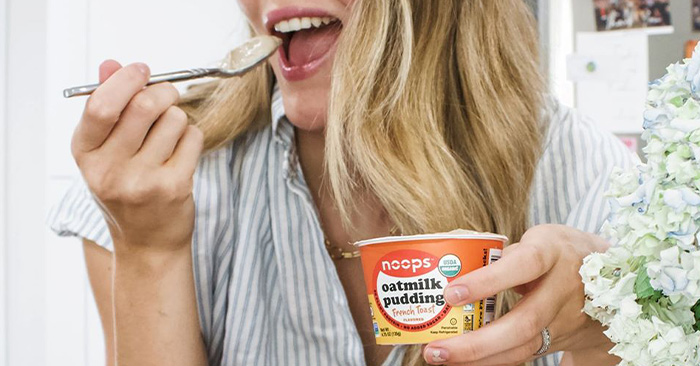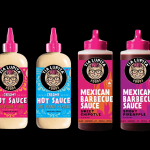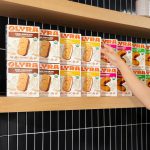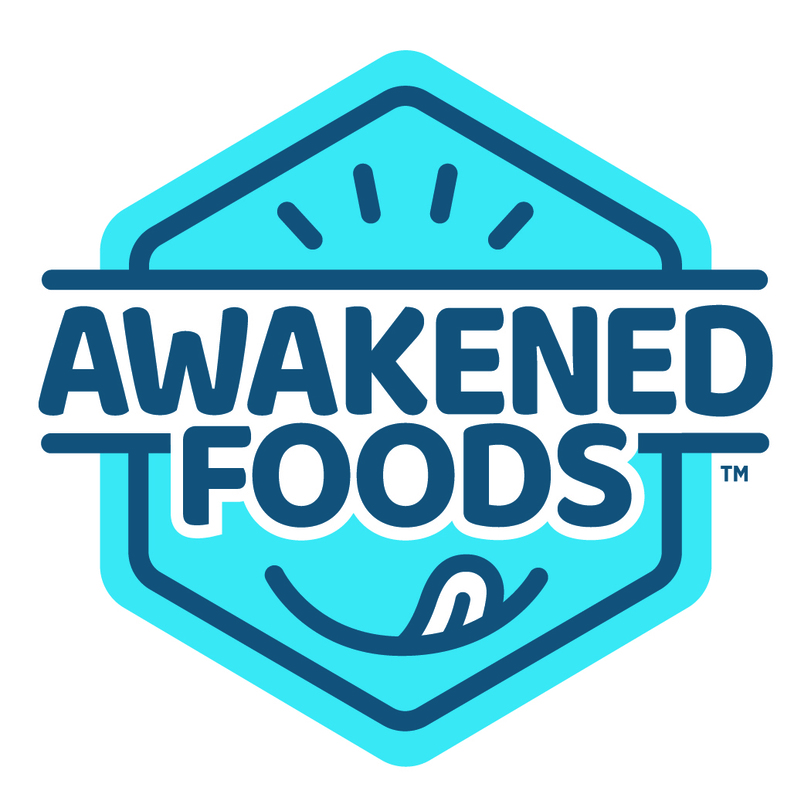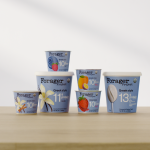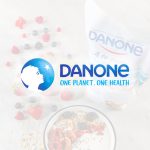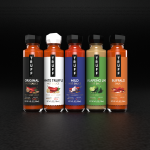Struck Tries to Continue Streak with Noops Launch
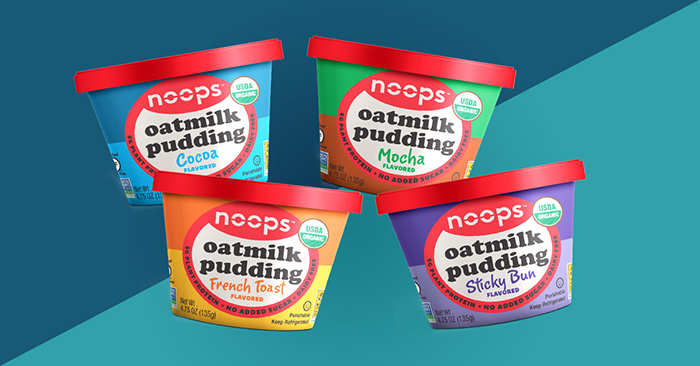
Gregory Struck has spent over ten years trying to reinvent classic American favorites with a better-for-you bent. Now the Long Island Iced Tea and Hungryroot cofounder is at it again with Noops, a new line of indulgent oat milk puddings, this time with the backing of several prominent investors.
The brand launched online last month, before debuting in Northeast independent retailers, such as Brooklyn Fare and Life Thyme Market, in August. Available in Cocoa, French Toast, Sticky Bun and Mocha, each 4.75 oz cup currently retails for $2.99.
Struck, who received a degree in business before attending the French Culinary Institute, has had a long career in the food industry. He started in operations at Shake Shack before moving to award winning restaurant Eleven Madison Park, and later went on to co-found Long Island Iced Tea, which was subsequently sold to a private equity firm. In 2013 he helped launch meal kit service Hungryroot as co-founder and COO, before departing in 2017 when the company shut down its own production facilities and switched to using copackers.
An immigrant from South Africa, Struck said his career has been dedicated to making better-for-you versions of American favorites. That goal was amplified in purpose when Struck himself was diagnosed with cancer and a rare genetic disease in 2018 and told he had to rethink his diet, cutting out ingredients such as dairy and sugar.
“The pudding category lacked innovation tremendously but it also had a profile that I could use in solving a problem for myself,” Struck said. “As a country that we are snacking more than ever and heart disease is still the number one killer of our people, but we’re human beings and human beings by nature are going to seek pleasure and indulgence.”
Noops is non-GMO and vegan, and contains 5-7 grams of protein, 180 calories and 5-7 grams of fiber per serving. The line has no added sugar, using instead dates and monk fruit as sweeteners. The similarities with yogurt are intentional, Struck said, adding Noops has “nutritional parity” to brands such as Chobani. Although yogurt companies have tried to position themselves as an option beyond breakfast, he added, pudding is better aligned in the minds of consumers as a snack or dessert offering.
“Why has all the nutritional glory gone to pudding’s cousin, yogurt,” Struck said. “And why is pudding, a quintessential American comfort food that has literally been around for 200 years, not seen any growth? And why is it largely controlled by the three same incumbents of Kraft Heinz, Conagra, and Land O’ Lakes?”
Beyond pudding, Noops next plans to tackle Jello itself, which Struck said is currently a $700 million business for Kraft Heinz, by launching a vegan alternative with no artificial flavors or colors. Struck noted the company has developed a proprietary recipe for the product and is currently pursuing a patent for the manufacturing process.
For both products, the goal is to be able to drop the price more in line with other premium snack offerings once the company has wider distribution. While Noops pudding will always maintain a premium position, eventually Struck believes he can get pricing down into the $1 to $2 range. The shift is similar to that of Chobani and Faye, he said, which first launched at a higher price point but now can be found on sale at 10 for $10.
Bolstered by Struck’s track record, investors have bought into Noops value proposition, he said. The company closed a $2 million investment led by 25madison, alongside Unovis/New Crop Capital and Siddhi Capital. Struck said he plans to seek additional funding in the first quarter of 2021, which will help the company expand into retail nationally. However, he plans to be careful about how much he raises, citing credit and debt financing as potential alternatives.
“I’m a big fan,” he said, “especially in this channel, of figuring out a way very early on, how to create a nimble resilient brand that will result in capital efficiency and a founder that hasn’t spent five to ten years of their life in a company to walk away with less than 1% ownership.”
